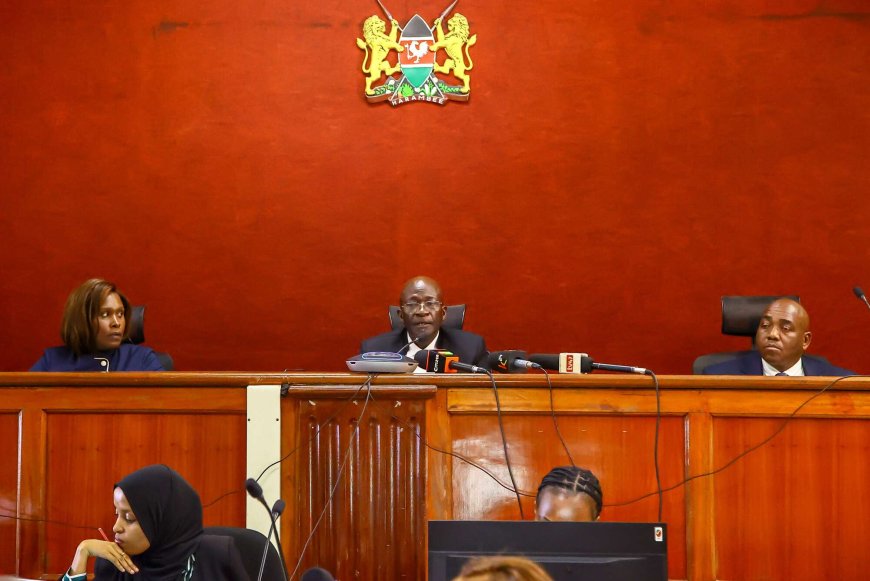The Court of Appeal has nullified Deputy Chief Justice Philomena Mwilu’s move to appoint a three-judge bench to hear consolidated petitions filed by former Deputy President Rigathi Gachagua, who was trying to block his successor, Professor Kithure Kindiki, from taking office.
On October 18, 2024, Justice Mwilu named Justices Eric Ogola (presiding), Anthony Mrima, and Freidah Mugambi to hear the petitions filed by Gachagua and his allies against Parliament and Prof. Kindiki.
But Gachagua challenged the appointments, arguing that Mwilu, as acting and not the substantive Chief Justice at the time, did not have the constitutional authority to form the bench.
Appellate Justices Daniel Musinga, Mumbi Ngugi, and Francis Tuiyott dismissed claims of bias against the judges but agreed that only Chief Justice Martha Koome is constitutionally empowered to constitute such a bench under Article 165(4) of the Constitution.

Deputy Chief Justice Philomena Mwilu. /FILE
“The discretion granted to the Chief Justice by Article 165(4) to empanel a bench is a power solely vested in the Chief Justice. It is the Chief Justice, and she alone, who can determine the number of judges to assign to a matter,” the judges stated.
“Similarly, only the Chief Justice can decide which judges to appoint to a bench. This addresses the related request that we direct the exclusion of the three named judges (Ogola and his two colleagues) from the new bench to be constituted.”
The Court of Appeal ordered Chief Justice Martha Koome to appoint a new bench—possibly larger—to hear the case, giving her the discretion to reappoint any or all of the judges previously selected. She will also decide whether the bench will comprise three or five judges.
Gachagua had argued that the initial judges were conflicted. He claimed Justice Ogola’s wife had received a state appointment from President Ruto and alleged that Justice Mrima had close ties with Senate Speaker Amason Kingi.
His legal team, including lawyer Ndegwa Njiru, also suggested a conflict involving Lady Justice Mugambi, alleging she was a postgraduate student of Prof. Kindiki at Moi University. However, this claim was debunked, as Moi University doesn’t offer postgraduate law programs. In reality, Justice Mugambi holds a Master’s from the University of Birmingham and a PhD from the University of Pretoria.
The appellate court found no evidence of misconduct or conflict of interest by the judges. It concluded by instructing that the case be forwarded to Chief Justice Koome within 14 days so she can properly empanel a bench under Article 165(4) of the Constitution.
“We have not identified any impropriety in the conduct of the bench. We do not find the judges to be biased or lacking impartiality. Whether to include them in the reconstituted bench is a matter entirely within the discretion of the Chief Justice,” the judges ruled.
Gachagua has been fighting his impeachment case since being ousted by Parliament in October 2024. This latest Court of Appeal ruling could have significant implications for his 2027 presidential bid, shaping both his public image and political capital heading into a critical election cycle.
However, should CJ Koome reappoint the same judges he tried to disqualify, it could signal that the legal system—and by extension, the political elite—are unmoved by his manoeuvring, a matter that could damage his credibility and spell doom on his chances to send President William Ruto packing in 2027.

The 3-judge bench of the High Court during court proceedings as of October 23, 2024. /X.JOHN MBATI









